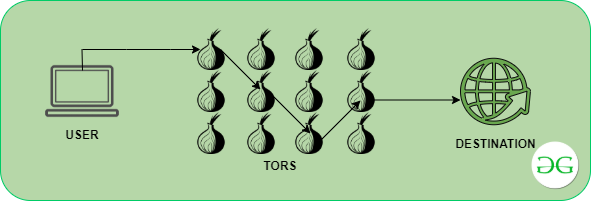Featured
Table of Contents
Tor Vs Vpn: Which Is Better?
In practice, Tor Web browser is totally free, while VPNs are usually paid, which makes your choice easy, right? You must simply opt for Tor and stop. Well,? Today, I wish to provide you a complete contrast of Tor vs VPN and discuss what they represent, their differences, utilize cases, and a lot more.
To begin this Tor vs VPN contrast, I initially need to discuss what these tools represent. Offering you a clear definition of what they are and how they work will help you understand their distinctions, so pay close attention. Beginning with Tor, this term is an abbreviation for "The Onion Router".
Nord, VPN It's important to keep in mind that this is a tool for privacy and not personal privacy I'll describe why shortly. When it pertains to Tor nodes, they're held and kept by volunteers, so we're speaking about a decentralized service, instead of a central service which is the case with a VPN.
The silver lining is privacy due to the fact that nodes aren't run by any particular companies, so you aren't running the risk of keeping and logging your surfing activity by that business. On the other hand, the security of each node depends on the person that's keeping it. As such, a node can be compromised by a hacker, let's state, who will be able to trace your connection.
How To Combine A Vpn And Tor Browser For Online ...
The entry node is more vital since, when connecting to Tor, your ISP can see that you did that through the entry node. We'll talk about that later on in this Tor vs VPN post.

Its "The Onion Router" name comes from the fact that it peels the layers of encryption likewise to the onion layers. And dark web sites also have the domain ". onion", which isn't a coincidence. Listed below, I described how Tor works and the process of encrypting and decrypting your demands.
When you connect to the Tor network and you send out a request, you get triple file encryption for each node. There's the entry node (often called the guard node), the middle node (or middle server), and the exit node. Tor sends your request to the entry node, which gets rid of the very first layer of encryption.
The entry node can't read the encrypted content of the demand, so it still can't trace your activities inside the Tor network. The traffic is then sent to the middle node, which eliminates another layer of file encryption and sends the encrypted traffic to the exit node. Lastly, the exit node peels the final layer of encryption, which is why it can see the encrypted request however it can't identify who is sending it due to the fact that it can't see your IP address.
Vpn Vs Tor: Which One Is Right For You?

If you're looking to remain confidential online and you're thinking about using Tor, I think it's excellent to know more about its benefits and disadvantages, so check them out listed below. The triple layer of file encryption ensures 100% privacy when using Tor Browser It's complimentary and doesn't need any memberships It's a decentralized, open-source network with no tracking and security Tor Web browser is capable of going on the dark web The entry node can read your IP address and make it noticeable to your ISP when using Tor Slows down your web speed significantly due to advanced encryption Nodes are operated by volunteers who might not do an excellent job at making sure they're safe and secure You can't choose an IP address from a particular country, so you can't bypass geo-blocks Tor Browser doesn't work on all platforms Wondering what are the distinctions between Tor and VPN?
VPN services provide thousands of servers in various nations, so they allow you to link to any of them easily and get an IP from the country you require. Then, each demand you send is routed through a VPN tunnel where it is sent out to a VPN server which decrypts it and connects you to the website you desire.
, for example, while Tor encrypts only the part of the connection sent out through the Tor Browser.

With a single layer of encryption, the VPN actually goes through less steps to secure your connection which has a huge advantage much quicker speeds and much better performance. Let's talk about the pros and cons of VPNs and see what they do well and what are their shortcomings. They're really easy to utilize VPNs can be installed on every platform (Windows, i, OS, Linux, Android, mac, OS, routers,) You can choose an IP address from a particular country, letting you bypass geo-restrictions There's a greater degree of accountability because you know who owns the VPN servers VPNs are extremely quick and exceptional providers use 10 Gbps servers Advanced security features like a kill switch, advertisement blocker, and Multi, Hop Total privacy, thanks to innovative encryption and the capability to conceal your initial IP It's a paid service which can be a problem for budget-constricted users Some VPN services are understood for storing logs (Hola VPN, Ninja, VPN, Betternet,) You should select a credible VPN that has a no-logs policy given that you're handing over your privacy/anonymity to that business Now that you what Tor and VPN are, I feel the requirement to rapidly summarize their distinctions simply to make sure you comprehend whatever well.
Latest Posts
The Best Business Vpn Services 2023
Best Vpn Solution For Your Business
Vpn Stopped Working: Here Are 4 Quick Tips To Get It Back